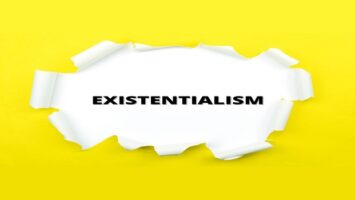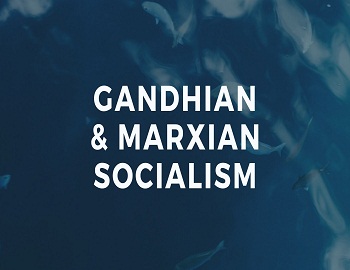Idealism and Aims of Education:
The following are some of the aims of education according to the philosophy of Idealism.
(1) Self-realization or Exaltation of Personality- According to idealism “Human personality is of supremi value and constitutes the noblest work of God.” Hence the advocates of idealism lay great stress on the exaltation of human personality as the ultimate aim of education. By exaltation of human personality, they mean self-realization or becoming spiritual. Self-realized man is an ideal man. He will have internalized spiritual values. Idealism, thus, wants to develop the ‘self of the individual higher and higher till self-realization is achieved. Adam says, “Since man is a spiritual being the divine in him should be unfolded and brought to his consciousness by means of education.” It may be noted that idealists have laid stress on the unity of the subject and the oneness of mankind in the process of self-realization. Self-realization also implies the realization of fundamental values, which are universal in character. Idealism gives more importance to social development than to the growth of individualism in education.
(2) To ensure Spiritual Development- Idealists give greater importance to spiritual values in comparison with material attainments. The complete realization of the fundamental values which are objective and perennial, is the ultimate goal of education. Man’s spiritual nature is the very essence of his being. The teacher should so organize education as to develop the child spiritually. Education must be religious, moral, intellectual, and aesthetic. According to Rusk, “Education must enable mankind through its culture to enter more and more fully into the spiritual realm, and also enlarge the boundaries of the spiritual realm.”
(3) To cultivate Truth, Beauty, and Goodness- Idealists assert that to develop spiritual values in the individual highest ideals should be encouraged more and more. Truth, beauty, and goodness are spiritual values. One should do the right thing, know the truth, and desire beauty. These values or desires remain constant for all time. The more an individual realizes these spiritual values, the more spiritually developed he will become. Hence education should strive to its utmost that these three eternal values (ideals) may be promoted, developed, and accomplished so that he achieves self-realization which will ultimately lead to the development of a harmoniously balanced personality.
(4) Conservation, Promotion, and Transmission of Cultural Heritage- Man himself is the creator of the cultural environment. Great significance is attached to the cultural environment created by religion, morality, arts, literature, mathematics, science, etc. Man is endowed with a keen and penetrating intellect, intelligence, and an enormous capacity of assimilating knowledge of the world. His creativity is dynamic and working since the very early times. Our cultural heritage is of immense value and worth. Man must not only conserve what he has inherited as cultural heritage but must so act that he adds something of his own to the culture of the race. Education must enable the individual to preserve, develop and transmit it to the whole world. Education must not only enable him to respect the values that he sees but it must enable him to make his own contribution in the enrichment and transmission of the culture. Hegel says, “Man becomes what a man should be only through culture.”
(5) Conversion of Inborn Nature into Spiritual Nature- For the real development of individuality, the inborn instincts and inherent tendencies of the child which are crude should be sublimated into spiritual qualities and values. Only then it will be possible for the individual to attain the fullest and highest development of personality.
(6) Universal Education- The idealists hold the view that the aim of education is to enable each one to become his highest, truest self. Further, the goal of educative effort must be self-realization for all, not merely for the favored few. It should be universal because all human beings are the creation of the same God.
(7) Social Aim of Education- Idealists want the social context must be the base of self-realization. The social aim of education for the idealists is to have a perfect and genuinely democratic society. Idealists aim at realizing the brotherhood of men in a democratic society. The social concept of education is enriched by idealism by the affirmation of the real existence of spiritual values. Rusk says, “Man’s higher or spiritual nature is essentially social.” However, the individual and social aims of idealist education are complementary to each other.
(8) Development of Inventive and Creative Powers- Animals must accept the physical environment as given as they have practically no power to change it. Man, on the other hand, is not in the helpless position to accept the environment as unchangeable. His inventiveness and manipulative skill enables him to change and modify the environment according to his needs. Education, therefore, must foster those inventive and creative powers of man that ensure his mastery over the material given to him.









Comments (No)